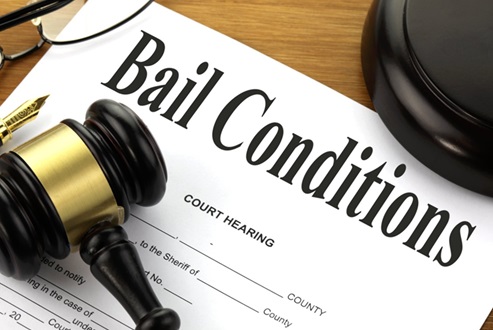(Prelims: Current Affairs)
(Mains, General Studies Paper- 2: Structure, Organisation and Functions of Judiciary- Government Ministries and Departments) |

Reference
The Supreme Court on June 23, 2025 took a strong view of the growing trend of accused voluntarily offering to deposit large sums of money to secure bail in cases like tax evasion and financial fraud and later reneging on the promise. The case came to light when a person, who was accused of tax evasion of over Rs 13 crore, approached the Supreme Court for bail.
What is the issue
- The accused offer to deposit large sums of money to show their bona fide to secure bail. However, after getting bail, they refuse to pay the amount.
- They seek exemptions in courts either by calling the bail conditions onerous or by accusing their lawyers of acting without permission.
- The Supreme Court has considered this strategy as an abuse of the judicial process.
Observations of the Supreme Court
- A bench of Justices K.V. Vishwanathan and N. Kotiswar Singh termed this trend as 'playing with the court'.
- Courts are repeatedly facing such cases which are affecting the judicial process.
- The bench clarified that 'parties cannot be allowed to resort to such tactics to take advantage of court orders'.
- The court also said that it is conscious of the rights of the accused under Article 21 of the Constitution but it is equally important to maintain the sanctity of the judicial process.
Bail conditions: Related legal aspects
- Bail can be granted under Sections 437 and 438 of the Code of Criminal Procedure (CrPC).
- Courts can impose conditions while granting bail, such as depositing money or regular attendance.
- Bail conditions become a legal responsibility for the accused.
- If an accused does not fulfill those conditions, it is a violation of the court order.
- Non-compliance of conditions affects the judicial process and is a violation of the powers of the court.
|
Also know this!
Sections 437 and 438 of the Code of Criminal Procedure (CrPC) deal with ‘bail in non-bailable offences’ and ‘anticipatory bail’ respectively. The provisions of Sections 437 and 438 have been moved to Sections 104 and 105 respectively in the Indian Civil Protection Code, 2023 (BNSS).
|
Challenges
- Abuse of judicial process: Frequent breach of conditions by the accused wastes the time of the courts and erodes confidence.
- Ensuring compliance of bail conditions: It is difficult to ensure that the accused will comply with their offer.
- Role of lawyers: In some cases, lawyers make offers without the consent of the client, which increases complications.
- Seriousness of economic crimes: Crimes like tax evasion and financial fraud have a deep impact on the economy, which requires strict action.
Way forward
- Strictness of bail conditions: Courts should make bail conditions clear and strict to ensure their compliance.
- Monitoring mechanism: An effective monitoring mechanism should be developed to ensure compliance of bail conditions.
- Strictness on economic crimes: Strict punishment and speedy trial should be emphasized in cases like tax evasion and financial fraud.
- Judicial awareness: Courts should be alert to such tricks and issue guidelines to prevent them.
- Accountability of lawyers: Lawyers should avoid making such offers without the consent of the client.



